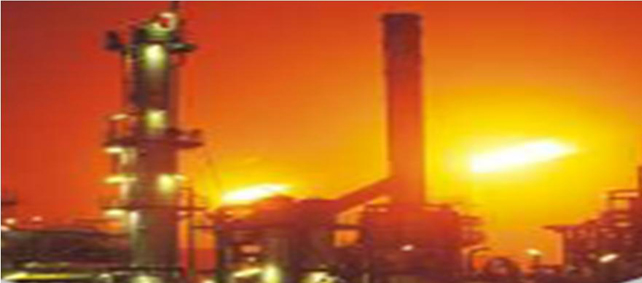
Sagar Chemicals offers a wide range of fuel treatment chemicals. The Various range of products are designed to condition fuel for better performance and operation of the system.
Fuel additives are chemicals, which alter the combustion parameters including the formation of SO3. There are wide ranges of chemicals used to improve combustion by:
- Improving atomisation
- Stabilising fuel
- Reducing excess air
- Catalysing combustion
Fuel additives are a judicious combination of various chemicals, which give cost effective performance.
Sludge Dispersion
- Improved fuel oil storage and handling – The sludge and contaminants are dispersed. This prevents clogged line s and filters.
- The water in the fuel is dispersed, whereby the water build up in storage tanks is dispersed.
Corrosion Inhibition
Organo Magnesium base compounds neutralise corrosive Vanadium compounds. Vanadium burns to form Vanadium pentoxide which forms highly corrosive Vanadium pentoxide (V2O5) which has a melting point of 670oC. Vanadium pentoxide is corrosive in liquid state. Mg/Va Oxides formed via complexing have high melting points in excess of 1100oC. Therefore, relatively harmless ash is formed. V2O5 is a catalyst for converting SO2 to SO3. SO3 when combines with water forms Sulphuric acid. The Mg/V complex will not catalyse SO2 and SO3. Prevent corrosion on account of Sulphur, through reducing Sulphuric acid formation.
Improve Combustion and Automisation
Thermosol speeds up combustion reaction reducing formation of soot, tar and clinker ensuring complete combustion at lower excess air. This improves fuel utilisation and reduces stack losses increasing overall combustion efficiency.
Surface active agents included in Thermosol reduce surface tension of oil and improve fuel oil atomisation by forming uniform, smaller droplets. The ashless dispersants in inhibit formation of resin or coke at burner nozzle keeping it clean for fuel oil passage
Fireside Chemicals
Even under the best operating conditions, the users can face several problems with fuels, from storage to combustion, including dust nuisance, carbon rejection in ash and fly ash, fouling and slagging of furnace and formation of clinker.
Sagar Techno Chem range of fireside treatment products from Sagar Chemicals contain dust suppressants, combustion catalysts; slag modifiers and corrosion inhibitors that help improve overall combustion and system performance.
Post Combustion Deposit and Corrosion Control
Impurities in fuel can cause post combustion deposit and metal surface corrosion. Many organo-inorganic combinations are effective in controlling combustion fouling and corrosion. The most severe problems are generally found in equipment and systems where fuels significantly deviate in composition from the designed fuel conditions.
Fireside fouling of combustion equipment is caused by the deposition of fuel ash components. The combustion of high ash oils produce deposition on the heat transfer surfaces. The most troublesome oil ashes are those, which contain a vanadium/sodium ratio less than 10:1. Fuels with low Vanadium Sodium ratio produce Tenacious deposits on the Heat Transfer surfaces. Vanadium reacts with oxygen to form various oxides in furnace. When formed vanadium pentoxide condenses within the furnaces when gas temperatures approach its solidification point. Sodium also reacts with oxygen and sulphur trioxide to form fouling compounds, especially Sodium sulphate. Nickel can also contribute to deposition by forming oxides. Aluminium can be present in the oil in the form of fines carried in from the catalysts of the catalytic cracking process.
Deposit Modifier
The formation of SO3 takes place during combustion and continues after combustion due to catalytic action of deposits on boiler surfaces such as Vanadium and Iron. The deposit modifier poisons these catalysts reducing secondary formation of SO3. Magnesium is commonly used poison for Vanadium and Iron catalyst. Such modifiers are either added as part of fuel additive or are injected in furnace.
Boiler Water Chemicals |
 |
